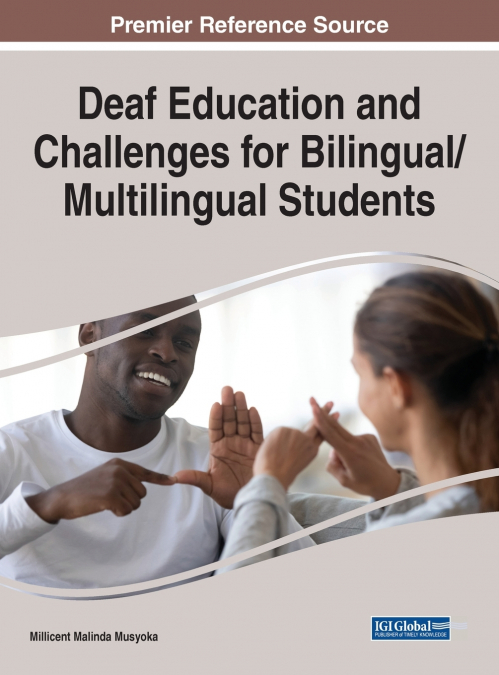
 Librería Perelló (Valencia)
Librería Perelló (Valencia)
 Librería Aciertas (Toledo)
Librería Aciertas (Toledo)
 El AlmaZen del Alquimista (Sevilla)
El AlmaZen del Alquimista (Sevilla)
 Librería Elías (Asturias)
Librería Elías (Asturias)
 Librería Kolima (Madrid)
Librería Kolima (Madrid)
 Donde los libros
Donde los libros
 Librería Proteo (Málaga)
Librería Proteo (Málaga)
Biliteracy, or the development of reading, writing, speaking, listening, and thinking competencies in more than one language, is a complex and dynamic process. The process is even more challenging when the languages used in the literacy process differ in modality. Biliteracy development among deaf students involves the use of visual languages (i.e., sign languages) and auditory languages (spoken languages). Deaf students’ sign language proficiency is strongly related to their literacy abilities. The distinction between bilingualism and multilingualism is critical to our understanding of the underserved, the linguistic deficit, and the underachievement of deaf and hard of hearing (D/HH) immigrant students, thus bringing the multilingual and immigrant aspect into the research on deaf education. Multilingual and immigrant students may face unique challenges in the course of their education. Hence, in the education of D/HH students, the intersection of issues such as biculturalism/multiculturalism, bilingualism/multilingualism, and immigration can create a dilemma for teachers and other stakeholders working with them. Deaf Education and Challenges for Bilingual/Multilingual Students is an essential reference book that provides knowledge, skills, and dispositions for teaching multicultural, multilingual, and immigrant deaf and hard of hearing students globally and identifies the challenges facing the inclusion needs of this population. This book fills a current gap in educational resources for teaching immigrant, multilingual, and multicultural deaf students in learning institutions all over the world. Covering topics such as universal design for learning, inclusion, literacy, and language acquisition, this text is crucial for classroom teachers of deaf or hard of hearing students, faculty in deaf education programs, language instructors, students, pre-service teachers, researchers, and academicians.